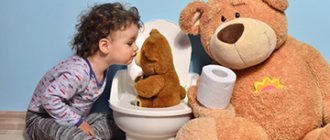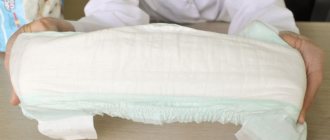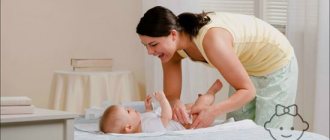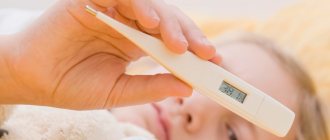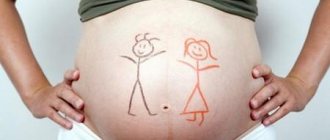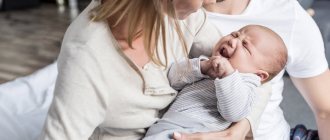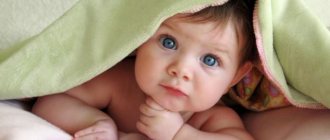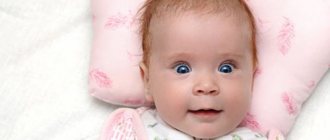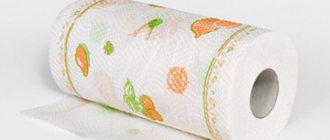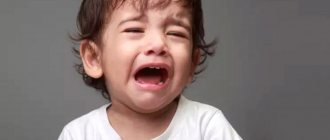The sight of wet children's pants in a sandbox, clinic or other public place causes shock and bewilderment of varying degrees among others. Our author and mother of two children Anna Zhuneva talks about her experience of motherhood without diapers.
My husband and I did this in a car, an airplane, a theater, a museum, on a playground, visiting relatives and friends... Why be shy? Wherever we come with the child, we drop him off there - either he or I. From life
Children of the 21st century physically cannot pee - everything is sealed, waterproof and “ultra-breathable”. “What are you, without diapers? How so? And at night? And generally always?!” Yes, there are no disposable diapers in my mom life. But there are two pissing girls.
Briefly about natural hygiene and how to do without diapers
This site is almost entirely dedicated to disembarkation, or natural infant hygiene.
Planting
- a method of infant hygiene, in which the mother, based on signals or simply the baby’s restlessness, notices his need to “visit the toilet” and helps him do this in a comfortable position and while remaining clean.
At the time of disembarkation, the child is not seated, but is held over a basin, sink, or in any place convenient for the mother, most often under the knees with the basin hanging in the air. Important: this rule also applies to older (six months to a year) children who already know how to sit independently. Therefore, if someone talks to you about “potting”, most likely this person has never heard of potting. I really like the English term “elimination communication”. This can be roughly translated into Russian as “toilet interaction.”
You can read in detail about why planting is needed here.
The fundamental difference between planting and potty training
is:
a) within age limits. Transferring responsibility for where he pees to the baby occurs around the age of one and a half years (sometimes a little earlier) and earlier potty training is really not advisable. And planting is even more important for a child, the younger he is.
I recommend starting planting before the baby is three months old. The maximum age for planting is one and a half years.
If your child is over one and a half years old, and you are still here, this is probably not in vain either. And the lectures are also worth listening to. Firstly, you will tune in to the right mood and find a circle of like-minded people, and this is not a little. Secondly, you will probably like many of the baby methods. And thirdly, you may have more children.
b) in goal setting. The main purpose of planting is to help the child learn to recognize the signals of his own body, and everything else: saving on diapers, potty training earlier than average and the environment are rather pleasant bonuses.
c) in accordance with the actions of the mother to the real needs of the baby. If a child is worried because he wants to write, and music is being played at this time, then the music will not solve the problem, but will temporarily distract the baby from the real cause of the anxiety. Is it worth distracting and forcing a child to “walk under himself” if you can offer what is really needed?
Planting is not the development of a conditioned reflex, or, in any case, it should not be so. When planting, the mother reacts to the baby’s signals, and not vice versa. If you already know about planting at the request of the mother, then I will say that it is also not the development of a conditioned reflex: if the baby does not want to go to the toilet, he will not be able to do it at your request.
Having gone through the disembarkation journey from start to finish, on this site I tried to collect everything that disembarkation parents will need. First of all, this is information: there is very little of it, almost none. Secondly, and no less important, is communication: most mothers who are starting mothers really need the support of like-minded women. I started a forum section to make the search easier. I remember how tired I was of the endless “put on a diaper” and “why”.
Planting consultant, or Who am I?
Imagine that you want to learn how to bake pancakes or how to crochet. Who will you turn to for knowledge? I think to someone who knows how to bake pancakes or crochet.
I know how to plant. I learned from my own experience, re-read almost all the literature on this issue (there is not much of it, unfortunately), took a course of lectures and called a consultant. In addition, I have been consulting on planting issues myself for quite some time and have gained experience.
Time to introduce yourself, right? My name is Nina Tabakova, and this is my website.
By education I am a philologist and translator, a candidate of economic sciences. Scientist, teacher, current associate professor (position, not title). By the nature of my main activity, I can search for information, find the main idea, work with arguments, and also explain clearly.
During my pregnancy, I came across Ingrid Bauer’s book “Life Without Diapers”, and I became “sick” with the idea of natural hygiene. Bauer is an excellent motivator; after finishing the book, I had no doubt that I would plant. However, everything turned out to be not so simple: unfortunately, Bauer has almost no practical advice, and I was not able to plant “by the book.”
I spent a lot of time searching for practical information. She's gone. At all. I called a consultant, I re-read several books, including in English, and with great difficulty I found several closed forums on planting. And after my daughter’s final transition to the potty, I collected everything I could find into my author’s course of lectures “Natural hygiene of babies as an alternative to diapers.”
Next came my author’s column on the portal Consciously, webinars within the Slingo League and very successful cooperation with this project, regular lectures at the “Big Turtle” and “Precious” clubs. Later, in 2021, the book “Baby Without Diapers” appeared. The book can be purchased right here, in Moscow retail stores (Biblio-Globus, Moscow House of Books, Young Guard), as well as in major online stores (Ozon awarded me the status of “bestseller”).
I do not invent rules and patterns of planting. I collect them in different places and write them down, accompanied by my comments: as a scientist and as a mother.
However, I understand that I do not know everything. That's why I have consultants.
Every page of my lectures and articles is endorsed by a doctor (I have great respect for official medicine and am absolutely sure that I have made no mistakes anywhere), a psychologist (it is the psychological side and the psychological consequences of planting that seem to me the most important, more important even than the medical ones), and the historical aspects - historian.
"Toilet Signals" and a book about the art of planting
The idea of giving up diapers took root in me back during my first pregnancy, when my reading circle consisted of various “books about the meaning of life” related to the topics of giving birth and raising a child. Fortunately, among them was Ingrid Bauer’s book “Life Without Diapers,” which strengthened my suspicions about the unecological nature of disposable diapers and inspired me to take a natural approach to baby hygiene. With my characteristic categorical nature, I decided to master the science of planting. Yes, I also lost my brain, because I had to be constantly vigilant: carry a ton of spare pants with me, at least once every half hour ask the child to do a “thing,” and always keep a basin under the bed. But the result was worth it, honestly.
I remember which fragment of the mentioned book seemed to me the most incredible. Ingrid Bauer argued that even the tiniest babies give “toilet signals”: they wrinkle their faces, shudder, whine - each in their own way expressing a feeling of discomfort. The parents’ task is to intercept the signal and “spread a newspaper” in a timely manner, that is, sit the baby over a basin or sink.
Doubtful, I thought, but it sounds great, we’ll try it! And literally the day after the birth of Mira, our senior guinea pig, we began to apply the principles of natural hygiene; To be honest, it was scary to just pick up such a baby, and even more so to plant her. But the uncertainty of the first days quickly passed, and we got the hang of it: we held it over the basin and said “peace-peace!” in English. - at first they did it chaotically, without any scheme, more at random. We focused on her behavior, and for the first few days it was like paranoia - we perceived everything as a “toilet” signal: a too distracted or, on the contrary, concentrated look, too serious or relaxed facial expression, restless movements. And they planted and planted and planted - poor Mira! But when it was possible to guess and catch the moment (out of 10 times - 2-3 successful plantings) - parental happiness knew no bounds!
Of course, diapers were still used up at the speed of light (in a day - from five to plus infinity), but these are the little things in life, the main thing is that contact was found with the child, which from now on had to be strengthened day after day. Gradually, by the second week, the “schedule” improved: most often she needed to go to the toilet after feeding and sleeping, and we began to catch these moments - the “on target/miss” ratio was approximately equal. And by the age of 2 months, my daughter, as a rule, gave clear signals - and here the outcome of the matter began to depend on our vigilance.
My consultants
Consultant doctor
The main and most important consultant and assistant, who endorsed every page of my articles, is my mother, Olga Leonidovna Tabakova
, pediatrician by education and neurologist by occupation, doctor of the highest category, neurologist at the district office of extrapyramidal disorders of the South-Western District of Moscow.
Leads the School of Health for People with Parkinson's Disease. You can contact her through the School of Health website, or on our Forum
Author of a lecture on childhood vaccination (I am giving the lecture now).
Consultant psychologist
Marina Ozerova
- educational psychologist, methodologist.
Since the age of seventeen she has been working with children as a leader of creative circles, a teacher, and a methodologist. Since 2004 he has lived in Israel. Conducts educational seminars for parents on joint creativity with children. Gives lectures on child development, covers topics of home care and education.
Author of the book “On Children's Drawing.”
Creator and leader of the “Children in the Family” community
Consultant-historian
Maxim Emelyanov-Lukyanchikov
– historian, journalist, traveler, candidate of historical sciences, specialist in Russian history and the history of civilizations of Tropical Africa.
Author of the book “The Rainbow Hierarchy. Russian civilization in the heritage of K.N. Leontyeva, N.Ya. Danilevsky, O.A. Toynbee, A.D. Toynbee"
Author and presenter of the historical program “Accents” (2007–2010) and live broadcasts on Thursdays (2012 - present) on Radio Radonezh. Regular author of the “Hour of Truth” and “Film History” programs on the First Historical Channel “365 Days of TV” (2009–2012).
How to choose diapers for a child
Participant in programs dedicated to travel and Russian history on “People's Radio”, TV channels “Culture”, REN TV, “7 TV”, organizer and participant of trips to Russia and Africa.
Maxim's official website
I also thank Natalya Golubtsova
, moderator of the Holopopy community, designer of slings and backpacks under the Kangarusha brand, from whom I borrowed a number of valuable thoughts.
© 2013 — 2015, Without diaper.ru
You are preparing for the birth of your baby. Choose a crib, stroller, clothes, diapers. Or you don't want to use diapers, but don't know what to replace them with? Then I will tell you about such a wonderful method as planting a child.
What is it? You will be with your wonderful baby all the time. And, after just a few days, you will be surprised to realize that he tells you with all his might when he wants to go to the toilet. Not the same, of course, as children one year old and older. But he will definitely signal you with signs: he will fidget with his charming butt, he will grunt, etc. Each mother learns to see these signs in her own way, just believe that they are definitely there. These are unconscious signs of the body. This means they cannot help but be.
In addition, you will realize that babies usually do this at a certain time. Most often - when they eat: during or immediately after. After sleep, walk. Even in sleep, it is not difficult to understand when your baby is doing his important job. He definitely breaks out of his sleep. This is how our body works: while deep sleep, not a single person, including a child, goes to the toilet. To do this, you need to, well, not just wake up, but at least go into the REM sleep phase. And this is usually immediately noticeable. He begins to toss and turn, groan, and wake up. Usually at this point you feed him. So why not go potty. Figuratively speaking, of course.
The good thing about planting as a method is that it can be used from birth. This is not a literal potty seating. No, this is contraindicated for a baby until he sits up on his own. You simply either take it to the bathroom or place it over some object that you have designed specifically for such purposes. For example, it could be the pelvis. And if you caught the moment when your baby peed, or - oh, happiness! – you know what I mean. So why put a diaper on him?
Many will ask: what if this happens during feeding? If you have a boy, then I know how creatively one mother approached this issue.
At what age should a child be weaned off diapers?
By the age of 1.5-2 years, the child begins to realize the need to relieve himself and communicate about it. Then you need to start explaining to your child what a potty is and how to use it. Wearing a diaper is acceptable up to 3 years of age, but it is better not to delay it: the baby will get used to the diaper, grow up and categorically will not want to part with it. There is no specific time frame for weaning off diapers; you must focus on the individual developmental characteristics and character of the baby. The following signs may indicate his psychological readiness to part with diapers:
- The child relieves himself at a certain frequency (every 2-3 hours, after sleep, lunch, dinner)
- The baby knows how to give signals that he needs to “go to the toilet”
- The diaper stays dry for a sufficient amount of time
- The child does not want to put on a diaper, is capricious, tries to take it off and demonstrates discomfort
Living without diapers is easy and convenient. Natural Parenting
She prepared jars of baby purees. And when they were having a meal, she simply set them up. And no inconvenience.
There is a widespread belief that because of this you are tugging at the child all the time and disturbing him. But no one can explain to me why. Within about two weeks, your baby will be awake for several hours a day. So why don’t you watch each other together and, if you have caught that moment, enjoy going to the potty? This will not cause him any trouble, since communication with his mother is the most precious thing that can be.
And as for the fact that the child is uncomfortable that you are potty training him, depriving him of his childhood... Nothing of the sort. Do not confuse planting with potty training. You don't force him to do his business whenever you want. You catch, guess, determine exactly the moment when the baby himself wants it. And what is the inconvenience here? When the time comes for potty training, you simply replace this potty training with the child. The baby will not protest and will quickly get used to it; he will begin to understand what they want from him.
So there's really nothing unnatural about it. You communicate, spend time together, and then, when your baby makes it clear to you that he is ready (only then, and not when you want it), you plant him: put out a jar, a bowl, a basin... Dear mothers, use your imagination. Do it with love, don't take it as a duty. And then there will be nothing complicated about it.
My personal experience. We only wore diapers when we had to go to the doctor or go on long trips. Even on the street, in a dream, we usually walked without them. Why? No, my baby was not wet. After some time, children whose parents practice peeing begin to suffer in their sleep and do not pee until they are three years old, as is usually the case. He started to wake up, we went home and immediately did our important things. The potty was generally received with a bang; my son immediately understood what to do there.
In any case, do as you please. And if you don’t have a European-quality renovation, which, of course, can be a shame to ruin, then the child can generally do without additional protective equipment. Let him pee for his own pleasure. You will begin to understand each other faster.
Alexandra Selyavina
Diapers: instructions for use
Any diaper consists of three main layers. The inner layer is in direct contact with the baby's skin and has the ability to transmit moisture in only one direction: towards the second layer. The second layer is an absorbent that turns all moisture that gets on it into a gel. The third, outer layer is polymer; it protects the child’s clothing and gives the entire product a certain shape. This is a form of panties that can have Velcro fasteners on the sides, or can be held on by an elastic waistband like regular panties.
A children's room and everything connected with it - furnishings, heating, comfort, safety - is of great importance, especially during infancy and early childhood, because it is during these years that the baby spends maximum time in his room. A children's room is a miniature universe for a child, a place with which his first ideas about the world around him, his dreams and fantasies are connected.
From birth, the baby needs careful care. For some reason, many people are reckless about the fact that the baby should be washed as often as possible and try to stock up on diapers with a long-lasting absorbent effect and wet wipes. Of course, changing a diaper a couple of times a day is very convenient for the mother, but it is unsafe for the baby and his health. One can only imagine what delicate baby skin can feel, bound in several layers of special material that does not allow moisture and air to pass through. It is precisely because of parental carelessness that dermatitis, allergic reactions, peeling and irritation of the baby’s skin occur.
Mom whispers - the child pees!
Mira was born in bitterly cold weather, so for the first 3 weeks we only walked on the loggia. Before getting dressed and after a walk, they offered her to use the toilet basin. Then the sling period began, almost a year long: of course, there were some floods, but these were exceptions that happened just during winter walks, when there is simply no way to take the child out of the jacket and take him to the toilet. But in the summer, I became so attuned to my daughter’s metabolic processes that my husband seriously began to think that I could read minds. And it’s true - a mother who has mastered the science of planting is very similar to a snake charmer: she whispers some magic words, and the child pees - magic! Over time, dad also began to successfully intercept the child’s signals and respond to them appropriately. In general, after about six months of mutual training, we all began to understand what a potty is (in the broad sense of the word) and how to use it - and in 70% of cases we managed to catch Mirina’s waste products in it.
The natural hygiene system was proving its viability, and I made optimistic forecasts like “our child will definitely be potty trained by the age of one and a half years!” But nothing like that, dear mothers and fathers, reality broke off the wings of my arrogant maximalism: after 6 months of age, there was a period when my daughter began to show her selfhood and did everything contrary to our expectations, then a period of upright walking, when the main goal was to learn to stand firmly and confidently walk, and hygiene issues were relegated to the farthest corner of the priority system. As a result, the starting point for toilet independence was the notorious 2.5 years - everything is like in other families, give or take. And here it’s fair to ask the question: what is the point of giving up such a convenient thing as a diaper? And the fact is that:
- we passed the intuition test and learned to understand the non-verbal language of our baby - this greatly helps us understand our parental role and get used to it;
- every day we were convinced that from the very first day of his life the child is ready to communicate and cooperate - and this is the most amazing discovery;
- it turns out that after six months the child is able to recognize the urge to toilet even in his sleep and restrain them until the last moment, waiting for disembarkation;
- after 9 months, metabolic processes begin to work in two modes, more active during the day and slower at night, so at night the child generally does not need the toilet; — he sleeps dry, and only at 7-8 in the morning he begins to ask to go “there.” Moreover, if you believe the words of experienced mothers, this happens to all babies, so there is no point in putting on diapers at night;
- we did not increase the volume of difficult-to-degrade disposable diapers, which constitute a significant portion of the waste of “civilized” humanity;
- the time of contact between the delicate baby skin and toilet secretions was minimal - we immediately changed her diapers/pants, so the baby never had any irritation or inflammation, and we only saw baby powder in pictures;
- I always knew exactly when and, excuse me, what the baby pooped with - it was easy to track her reaction to the introduction of complementary foods;
- in 2.5 years we saved 60 thousand rubles - about the average amount spent on diapers with moderate use. What a blessing that we spent this money on more productive purchases and activities!
Now we are litter training our second child, Vesta. The process is going like clockwork: I believe that previous experience and the baby’s character are having an effect - she is calmer and more flexible. Already from the age of two weeks, we had dry nights and days, and now, when Vesta is almost 9 months old, the percentage of hits on target tends to 90%. True, in order not to get carried away with “brain draining,” I still acquired insurance in the form of reusable diapers. Most often they remain dry - disciplined Vesya does not want to tarnish her reputation.
P.S.: It’s very easy to develop the skill of planting, because our mothers once watched over the basins! So you just need to shake up your genetic memory and try. And even if you are not mentally ready to completely give up diapers, it will still benefit both you and the baby. Tested on myself and several familiar (also slightly old-fashioned) mothers. "Peace" to everyone.
- share with your friends!
Is it possible to raise a child without using diapers?
I was sitting on my back patio with my new friend, enjoying the setting August sun and warm air. We met last week and became friends immediately. She agreed to come visit me without hesitation. As we chatted, I admired the clear beauty of her pregnancy. Her curves definitely showed that she was expecting a baby. We talked about the miracle of birth, about the creation of new life.
As we chatted, my six-month-old son stirred in my arms. I stopped mid-sentence. My intuition hinted to me that the baby required my full attention.
“Sorry, I’ll be there for a minute,” I said to my friend. — My son wants to pee. I wanted to go into the house, but changed my mind and went to the nearby bushes. I took off the baby’s pants, sat him down and said “ps-ps.” At that very moment the child peed.
Doing without diapers: experience of nonverbal communication with a child
I put his pants on him and returned to continue the conversation.
- How did you guess? - she exclaimed. - But how did he... That's funny!
“Yes, it’s funny,” I agreed. “At the same time, it’s as simple as feeding a baby when he’s hungry.”
“I didn’t even know this was possible,” said my friend, moving her chair closer. Tell me more.
So let's start our conversation about the deepest bond - the bond between mother and child and about Natural Hygiene for the Little Ones.
Funny but usual
People are surprised to learn that my son stopped using diapers at 4 months. They probably think that now he pees and poops anytime, anywhere, and I clean up after him. People find it difficult to believe that he was aware of his need to "go" from the very beginning and that we could understand each other on this issue before the child said his first word. Even those who saw this with their own eyes, like the child and I understood each other’s signals, only exclaimed, “This can’t be true!” - and shrugged their shoulders.
However, it is possible. I can confirm this. Around the world, people of many cultures have never used diapers or nappies. Instead, they relied on the natural understanding between mother and baby - a mutual understanding that allows them to raise a well-groomed and happy child and keep the house clean. However, few of our contemporaries realize that the same thing can be done in our time - to significantly reduce the number of diapers used, or even abandon them altogether.
In my search for a natural alternative to diapers, I discovered that newborns are aware of their need to pee or poop from birth! It's amazing that they are able to signal to mom - and they actually ask for their needs - and also respond to feedback from their parents. Listening to your baby's requests for help to pee or poop is as natural as breastfeeding when he's hungry. And it also firmly strengthens the relationship between mother and baby.
A gentle alternative to endless diapers
I never thought that I would have a child who did not use diapers - this is in our time when the words “buying diapers” have become synonymous with the words “gave birth to a child.”
When the blessings of motherhood first entered my life 16 years ago, I was convinced that all children needed diapers and then potty training. I couldn’t imagine any other alternative - except maybe a debate on the topic “Which is better - diapers or gauze diapers?”
Then I believed that a newborn cannot control his muscles and that conscious regulation of the “processes” of peeing and pooping begins only by the age of 2. Expecting more from a child would mean violence and stress, causing various disorders. Of course, I tried to avoid this.
Since then, I have revised all my views on this topic. My youngest son (like millions of other newborns around the world) had no difficulty recognizing the need to pee or poop. He felt his body perfectly and controlled its functions. We understood each other from birth and could agree, so from the age of 4 months he was free from diapers. And my youngest daughter has not used any diapers or diapers since the moment she was born. And all the consequences were only positive - strengthened mutual trust and a close bond between mother and babies. The children felt great and were confident in themselves and their bodies.
"Revolutionary discovery" with ancient roots
The technique that I created and called “Natural Hygiene for the Little Ones” seems strange in our culture. However, it was precisely this method that was used for almost the entire existence of mankind. For thousands of years, parents raised babies without diapers or nappies. And to this day, throughout the world, in many cultures, this tradition is preserved, when a mother knows how to listen to her baby’s signals, understand his physiological needs and respond to them quickly and accurately - so that the children remain clean, dry and happy.
The Natural Hygiene method is common in Asia, Africa, partly in South America and among the indigenous American Indians. For all these mothers, understanding baby's signals and timely placement is as natural as breathing. Nowadays, fans of this method are emerging among modern parents, both in Europe and North America. Their number is constantly growing.
This attracts parents:
Because it is natural;
Because children feel comfortable and calm;
Because it saves money on diapers, creams and washing powders;
Because it is very environmentally friendly;
Because it supports the child's confidence in his own body;
Because this solves the problem of further “potty training”.
The Natural Hygiene Method will help you give up diapers and gauze diapers - if not completely, then at least significantly reduce their number.
But the most important and main advantage of the Natural Hygiene method is the creation of a strong and deep connection between the baby and parents. You will see that you understand your baby and that he understands you. Your reward will be constant mutual contact, deep mutual understanding and the creation of strong and strong relationships based on trust.
Life without a diaper: how it happens
When my friends find out that I regularly carry a child to pee or poop and do not rely on diapers, many see this as a huge amount of work, some kind of ordeal. It surprises me all the time. On the contrary, it seems to me that there is much less work here than with the traditional changing of diapers and washing diapers. My “job” is much more enjoyable! In addition, parents who wait until the child is “ready” to potty train, spend a colossal amount of time and effort trying to teach the child what he initially knew - and then forgot with the help of diapers.
“Traditional” parents still go through this when potty training their child - they monitor “embarrassments” around the clock, constantly wash and wash. But for them it lasts much longer than for those who used the Natural Hygiene method from an early age.
I thought about this paradox and realized: yes, the Natural Hygiene method is a kind of work. But this is a completely different job than it seems at first glance. The main emphasis here is not on washing and cleaning up after the child (although this also takes a lot of time at first). The main thing here is to listen to the baby, listen deeply and carefully, constantly be there and respond immediately. If you do not destroy the natural mechanism in the first time after birth, then you will not have to try to restore it again. Of course, it can be difficult to feel your child and “be on the same wavelength with him.” Most parents still protect themselves with diapers, especially at first, when leaving the house and at night while sleeping.
Yes, from a philistine point of view, this looks much less convenient than with traditional practice, when you can leave the baby lying in a dirty diaper until the mother finishes her important work. This will force you to be more responsive and sensitive. At first, it will require efforts that are unusual for modern parents. However, the increased closeness with the child, trust and mutual understanding is undoubtedly worth it.
Children accustomed to the Natural Hygiene method become completely independent and independent in “toilet matters” between the ages of 10 and 20 months. Their parents I spoke with admit that they would go through the whole process again, even if it took as long as traditional potty training. They all highly appreciated the closeness to the child and the joy of mutual communication.
Mothers who breastfeed their babies on demand are in a similar position. They also cannot leave the child for long. However, this “inconvenience” is more than compensated for. In return, they receive a feeling of joy and pride from providing their baby with complete comfort, ideal nutrition and a sense of security. The same goes for the Natural Hygiene method.
The Natural Hygiene for Little Ones method is much more than just teaching planting skills.
Ideally, this is one of the paths to a fundamentally new life with your baby. Children who are accustomed to this method, who are fed breast milk and are in frequent or constant contact with their mother's body, feel completely different. They grow up calm, happy, and self-confident. Research has shown that such children cry less and communicate their needs more and more clearly. In turn, this strengthens parents' self-confidence. It is these parents who have undeniable advantages when it comes to optimally meeting the needs of the child.
I believe that the main thing here is “to be with the child here and now,” to feel him every second. There are days when you feel like this is the hardest thing in the world. But there are other days when you feel enlightened, elated and incredibly close to your baby. Set yourself up for exactly this.
Give your child yourself - your time, your attention, your body, your love and your responsiveness. Nothing could be simpler - but nothing could be greater. This will lead you to a life full of happiness and mutual trust, full of communication with your baby. This will give your child confidence and zest for life and will breathe new strength into you.
Author: Ingrid Bauer
Like
Section title: ABC of health Source of information: book “Life without a diaper! Natural hygiene of the little ones"
How to raise a child without diapers
During my pregnancy, I read Ingrid Bauer's book Life Without a Diaper, which really inspired me. Before that, I had a negative attitude towards disposable diapers and dreamed of raising my baby without this integral attribute of modern infancy, and after reading Ingrid’s story, I not only confirmed my decision, but also realized that everything is more real and simpler than it seems. Today I can say from my own experience: you can raise a child without “diapers” - I have never put on a disposable diaper for my son in his life and I don’t even know how to use it. Living without disposable diapers is real, it is environmentally friendly (on average, during the time he learns to go to the toilet exclusively using the potty, he produces three tons of non-degradable waste - his used disposable diapers) and it is safe for the baby (while "diapers" can be harmful to a child's health).
Every mother raising a child without diapers has her own techniques that help her in her noble cause. Here are the devices and techniques that made life easier for me personally without disposable diapers.
Planting
This topic deserves a separate article. Sitting is not even a method of baby hygiene, it is rather a way of life in which the mother intuitively understands that her baby wants to go to the toilet (big or small), and invites the child to relieve himself: over the sink, basin, potty, grass , i.e. in any place convenient for her. Surprisingly, when a mother spends all her time with the child, gives him all her attention, and the baby is without a diaper, the woman, seconds before the child begins to pee, suddenly feels that he needs to go to the toilet, and manages to quickly undress baby and “drop him off”: hold him over something, bending the baby’s legs at the knees. Of course, such a sense of the needs of your child does not come in one day, but over several weeks. The child helps his mother: before peeing or pooping, he gives signals (starts to fidget, for example). Read more about these signals and how to learn how to set your baby out in the book “Life Without a Diaper”! Believe me, your view of the world and raising a child will definitely change!
Disposable diapers
While a mother is learning to feel the needs of her child, when the baby stays with grandparents, and also for any emergency (travel, going to the doctor, etc.), it is good to have aids on hand instead of “diapers.” One of them is disposable diapers, which can be bought at any pharmacy. There are several sizes: large for a crib, small for a stroller and medium for everyday needs. We used different types; in different situations it is more convenient to use different diapers. You yourself must try and understand which size is right for you and for what purpose. The rational use of disposable diapers saves a lot on the budget. For example, if your baby peed on the edge of the diaper, you can turn up the edge and put the diaper on again, rather than throwing it away right away. Because A newborn's urine has no odor; you can dry the used diaper and cover it a second time.
Reusable diapers
Unlike disposable diapers, which are filled with cotton wool, reusable diapers are made of special fabric that does not allow moisture to pass through on one side, but absorbs it on the other. These diapers wash well. They are sold in children's stores (we bought them at Antoshka) and also come in three sizes. We used the smallest, oval diaper not so much to put it on the sofa or in the stroller, but to wrap the child between the legs when we dressed him in a sling backpack or in a warm overall for a walk. Because It’s inconvenient to wash a backpack and overalls every time, a reusable diaper really helped out: if suddenly my son peed in his pants (although thanks to the drop-off I learned his rhythms and took him out for a walk when he definitely didn’t want to pee, sometimes mistakes still happened, as exceptions in any rule), he only wet his pants and a reusable diaper. By the way, we still use reusable diapers; I put them in bed at night to protect the sofa and bed from rare and accidental nighttime peeing.
Gauze "diapers"
These are not exactly diapers, but inserts for use in the first months of a baby’s life. You buy a package of gauze (for example, 10 meters) and cut the fabric into identical pieces 1 meter long (you get 10 gauze inserts from one such package). Fold the fabric in such a way that you get a long rectangle that will cover both the baby’s butt and pussy, and the width will fit between the legs and will not cause any discomfort to the baby. Gauze “diapers” are soft and absorb liquid well, so at first, while the baby’s pee volume is small, they cope with their task. I placed them directly under pants or panties, on the child’s naked body, without fixing them with anything, because... the clothes held them well as is. Sometimes it was enough just to remove the wet gauze and replace it with a new, washed one - the things remained dry. Sometimes the baby had to be completely changed. It is appropriate to say here that if you decide to live without a diaper, then the most comfortable clothes for your child are separate pants, panties, T-shirts and blouses. Bodysuits and one-piece overalls will not suit you, because... if the child wets himself, it is easier to change only the lower part of the clothes than to change the baby’s clothes completely (as in the case of a bodysuit). And the last thing: we needed 15 gauze diapers for the first time. Subsequently, you can buy more gauze and update the gauze “diapers” or simply increase their number.
Reusable nappies
But this is a real healthy alternative to a regular disposable diaper. Reusable diapers are made from cloth. They do not get wet, retain moisture well and are washable. We kept Seraphim without “diapers” almost all the time, and we wore reusable diapers on the road, on visits, and very rarely for a night’s sleep, i.e. just a few times a week for a couple of hours. For this, it was enough for us to have 4 pairs of panties and 8 fabric inserts for them (if the baby peed, you can replace the insert with a dry one without changing the panties). But even if you want to use reusable diapers all the time (instead of disposable ones), 10 pairs of panties and 10 inserts should be enough for this purpose. One reusable diaper with insert costs about 130 lei. I bought them from an ad on the Internet; in Chisinau there are mothers who distribute such diapers, and there is also a woman who sews them herself. You can buy reusable diapers online on a foreign site, it will be cheaper. In this case, it is advisable to cooperate with at least one other mother, so as not to pay for delivery (delivery is carried out without money when purchasing, it seems, from 20 pairs). In this case, you can forget about “diapers” for the coming years, because reusable diapers will be enough for regular use.
Now that Seraphim almost always asks to go potty on his own, I remember the time when he grew up bare-bottomed, without diapers, and I never regret that we never became acquainted with disposable diapers. We didn’t know what irritation, diaper rash, allergies on the butt and in the folds between the legs were. Yes, it was hard at times, every day I had to wash wet clothes and diapers 1-2 times, but my child grew up healthy, and over time he definitely won’t have the problems that some children who grew up in “diapers” have. The best proof of my words was that an ordinary family doctor from the area, to whom Seraphim and I once came for an examination (he was 3 or 4 months old at the time), said: “You are the only one in my area who does not put diapers on the child. I am so glad that you understand: wearing “diapers” is harmful. I tell all the parents this, but no one listens to me because diapers are convenient. It's good that you're raising your child healthy! Well done!"
https://www.mamamoldova.com/
Click here to view
